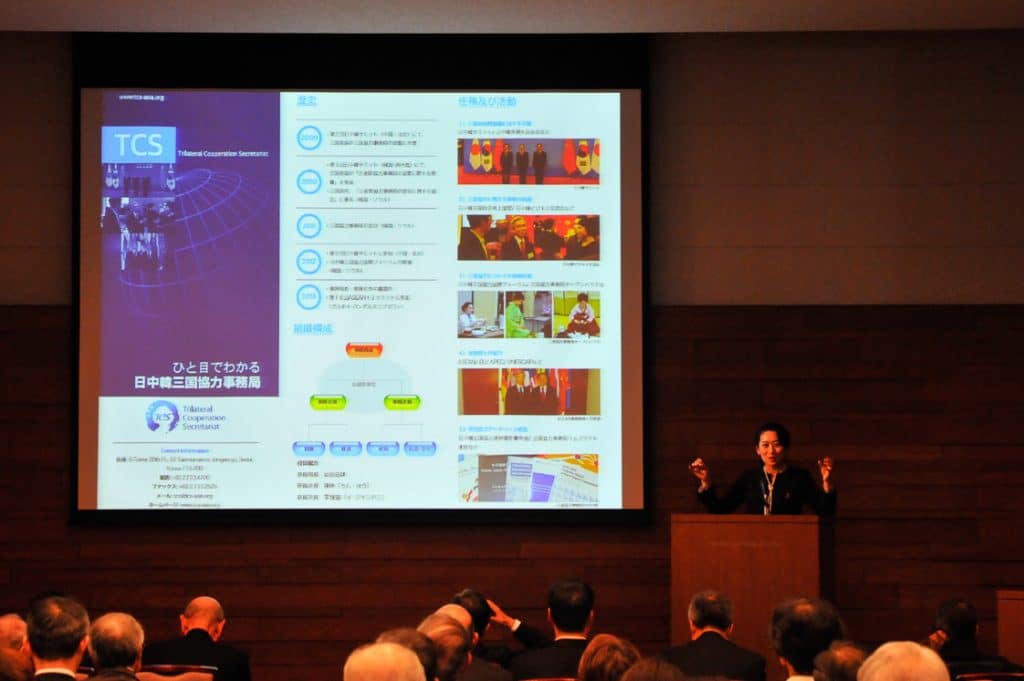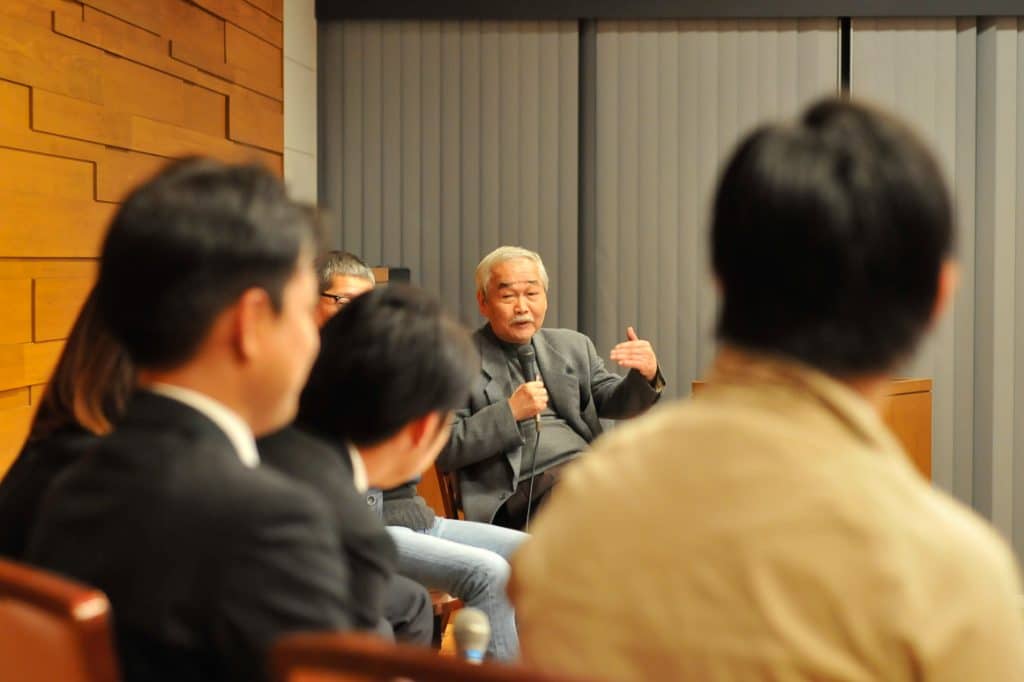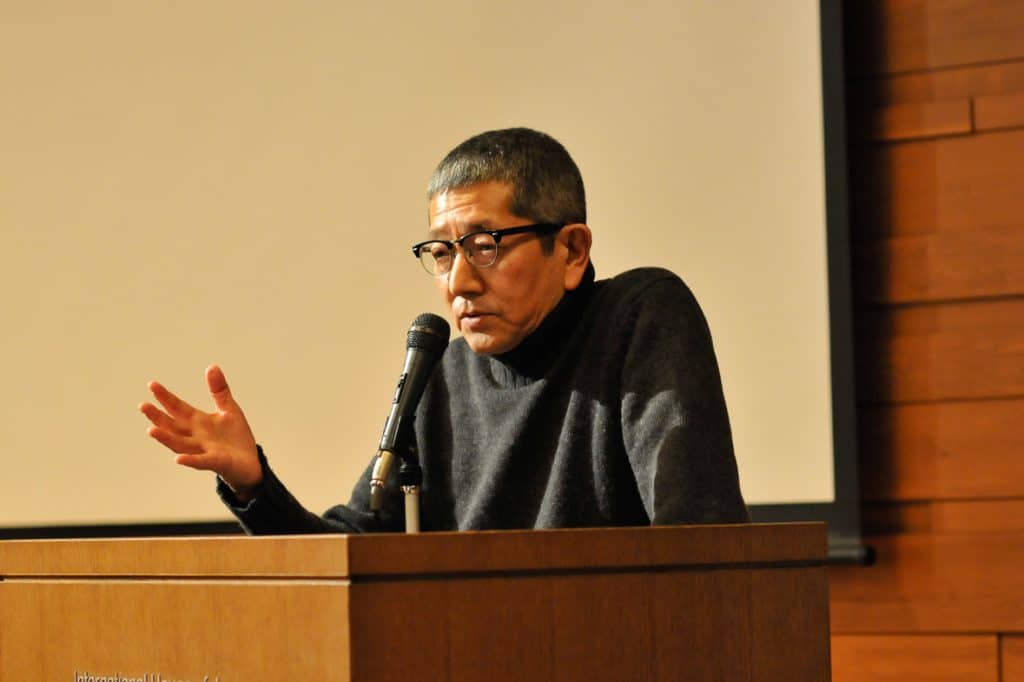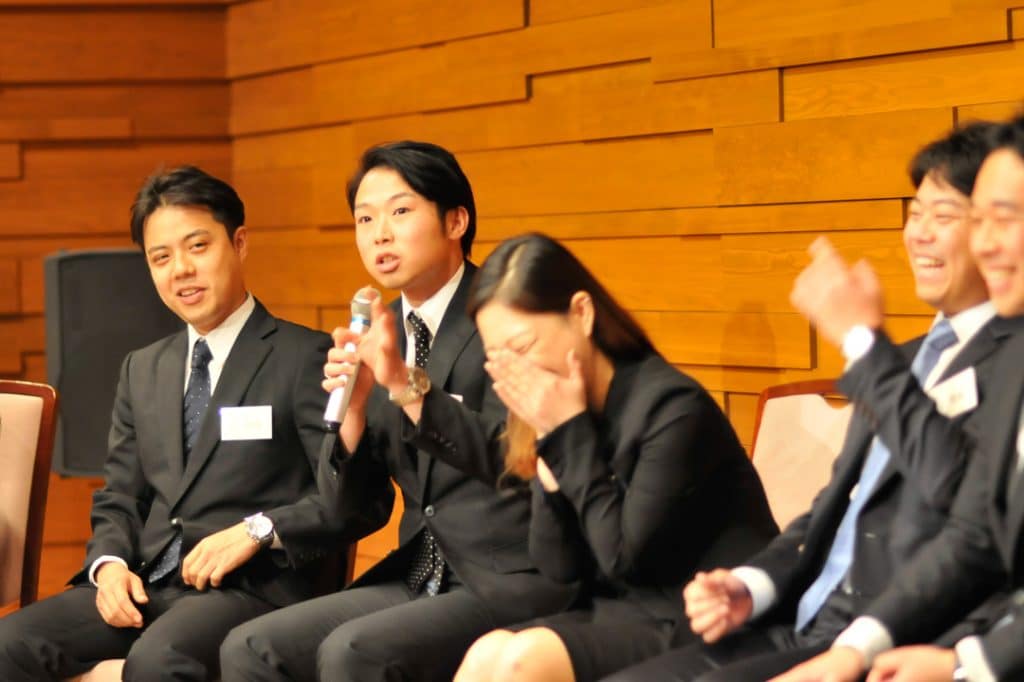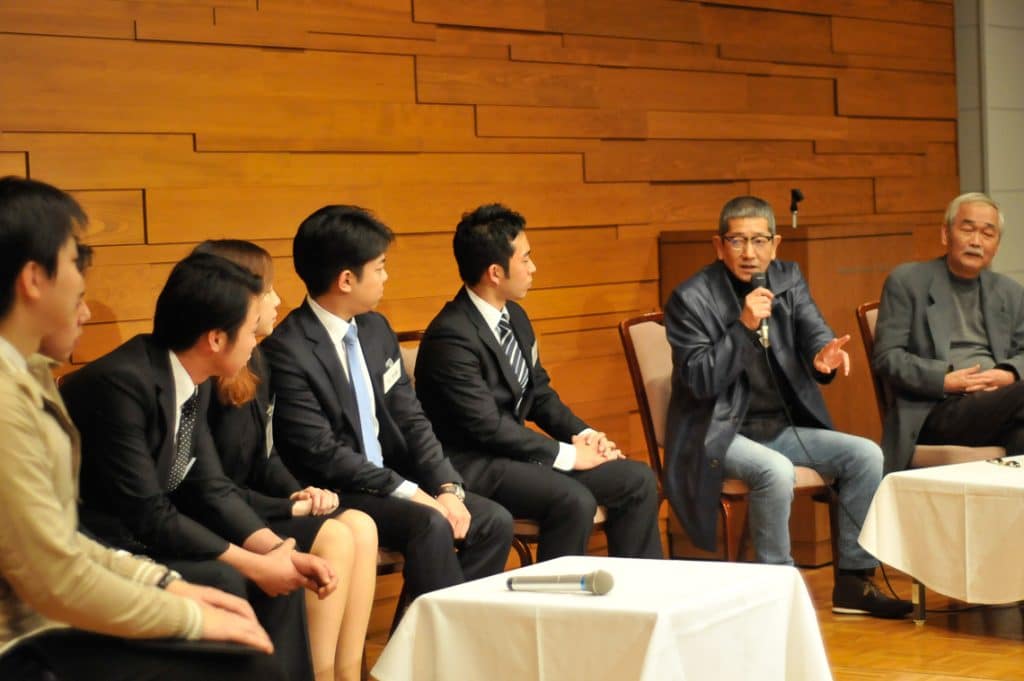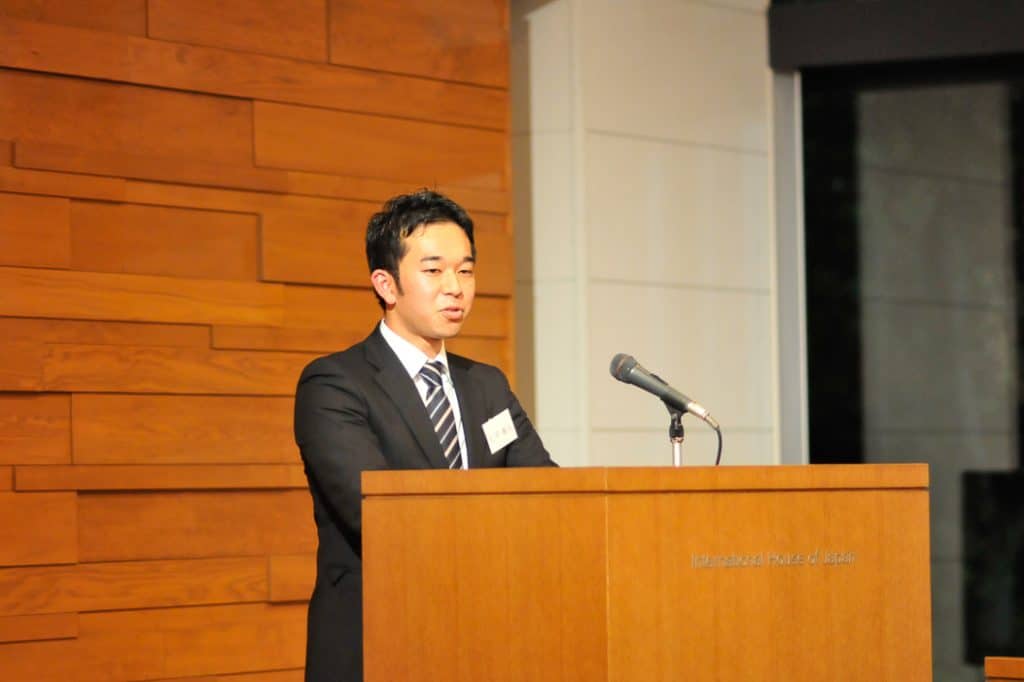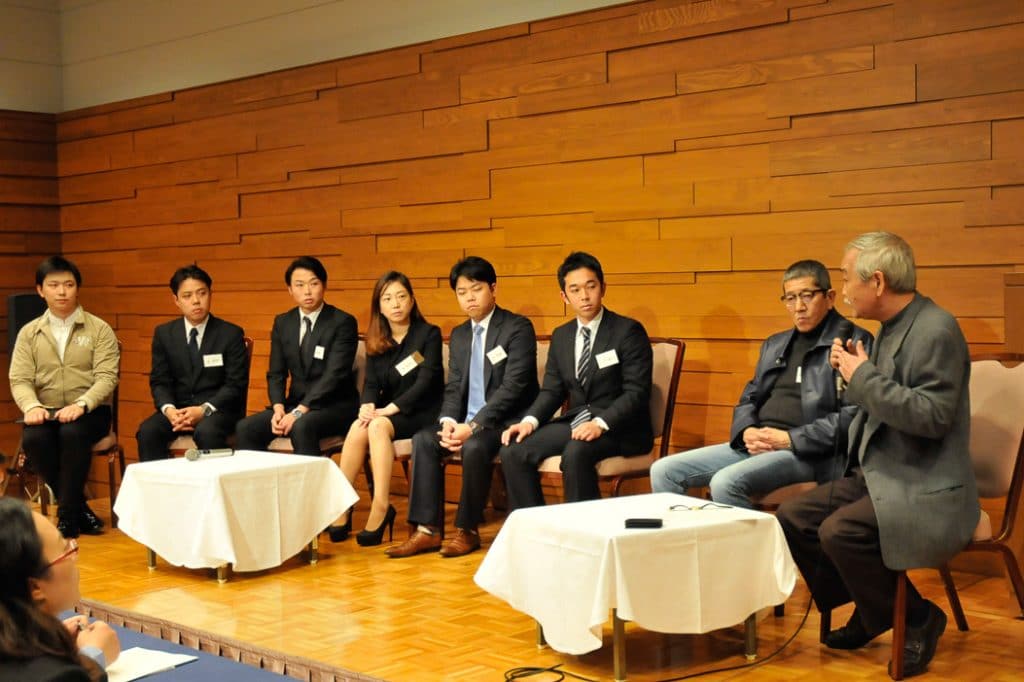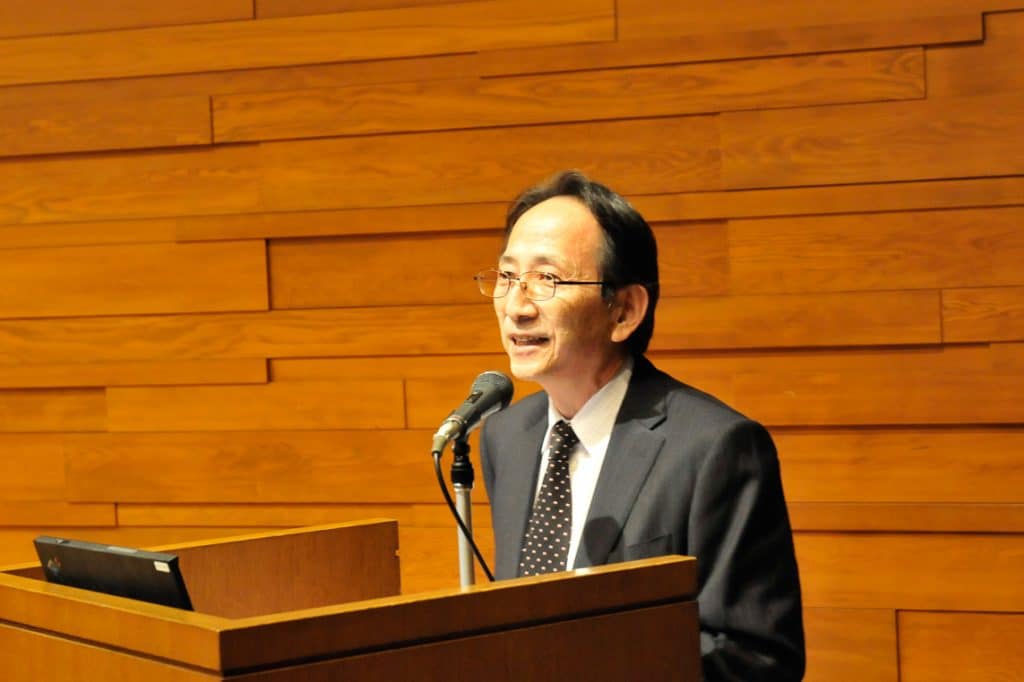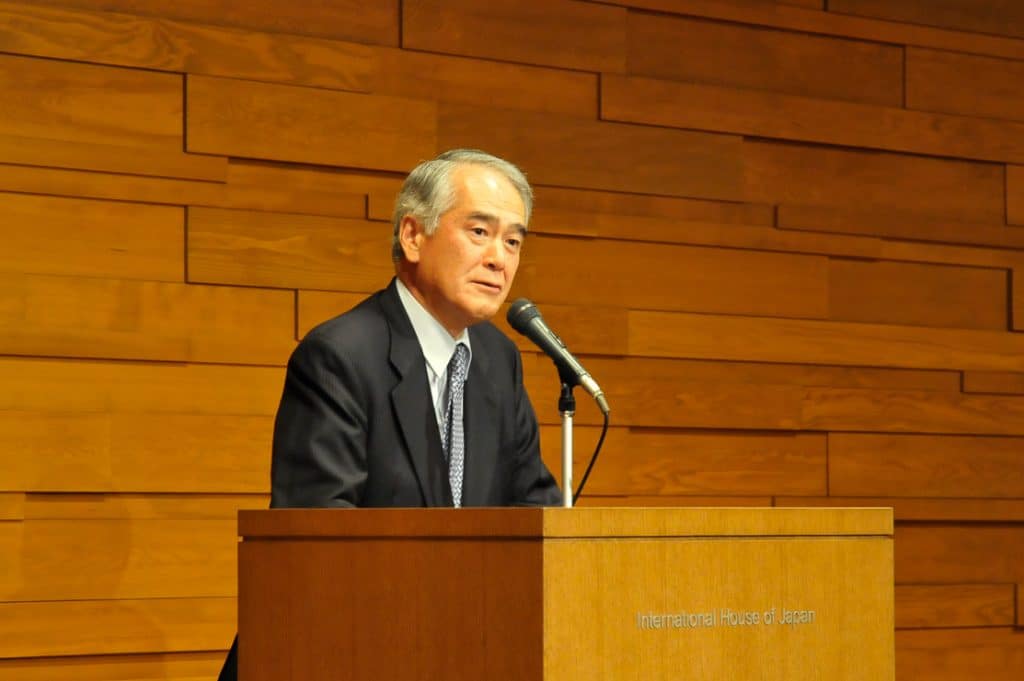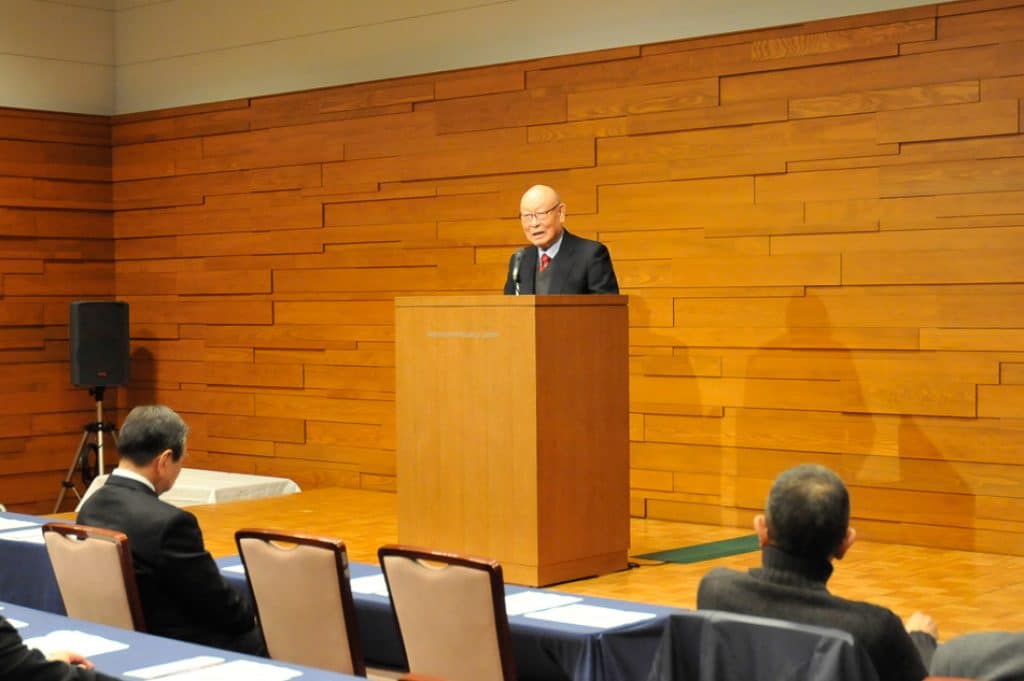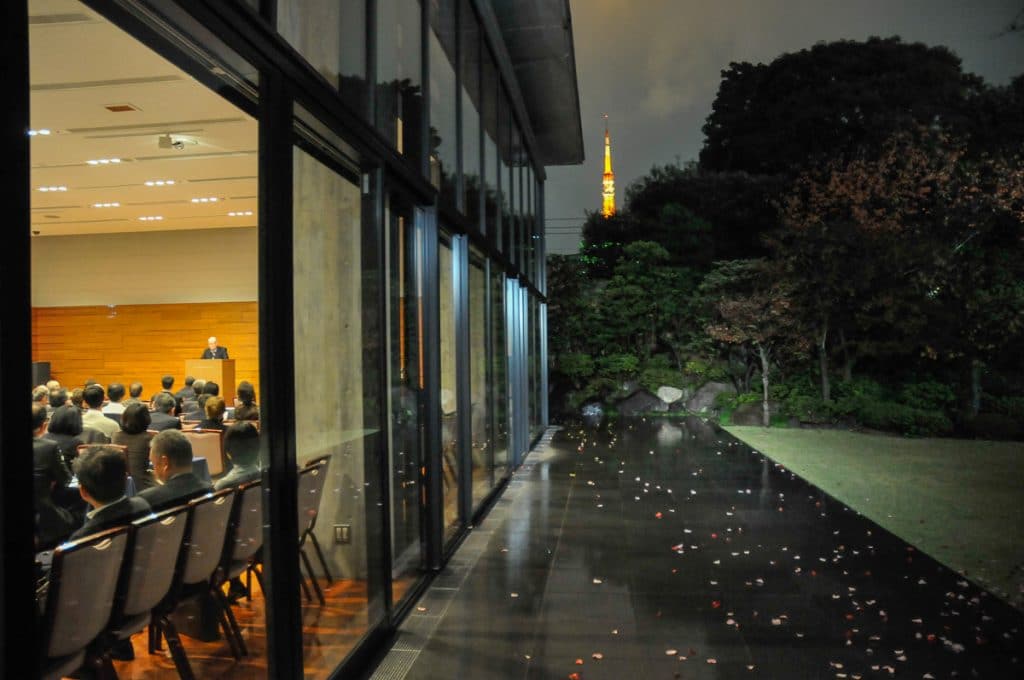On November 24, 2014, the first seminar in the Rediscovering Common Bonds among Japan, China, and Korea series was held at the International House of Japan. The project seeks to rediscover the historical and cultural bonds among China, Japan, and Korea, to identify shared challenges and new types of cultural exchanges led by the younger generations, and to investigate each country’s new role in the 21st century.
Under the theme “Opening up Future Possibilities through Stage and Video,” the seminar invited the participation of Chinese, Japanese, and Korean artists and college students who have had experience working collaboratively to produce theatrical works and films. Approximately 120 people attended.
Opening Ceremony
In his opening address, journalist and JCIE Senior Fellow Yoshibumi Wakamiya, director of the project, explained that the project targets the younger generations in all three countries, whose futures are in jeopardy due to political tensions in Japan-China and Japan-Korea relations. JCIE/Japan President Akio Okawara then spoke, calling for greater participation from the younger generation in the future and underscoring the importance of exchange programs. Finally, Former Minister of Foreign Affairs Ro-myung Gong, president of the East Asia Foundation, asserted that despite the cold political ties and hot economic relations, there still exists a bond among the people of the three countries.
Student Collaborative Films: Trilateral Cooperation Secretariat Video Contest
In the second portion of the seminar, three films were shown that were winners in the Trilateral New Wave Contest sponsored by the Trilateral Cooperation Secretariat. The contest calls for teams consisting of students from China, Japan, and Korea to create collaborative films, which serve to create an atmosphere of exchange.

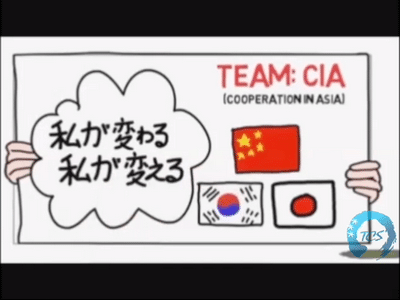
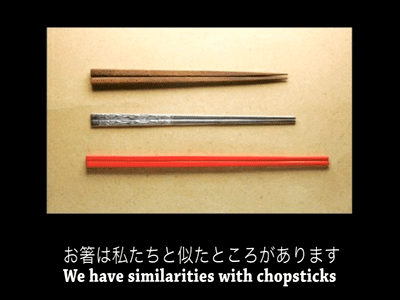
Collaborative Works by Professionals: Celebration/Expression
The next speaker was Koji Hasegawa, founder and director of the Hirosaki Theatre Company. In 2013–2014, with the co-sponsorship of the Japan Foundation and the Aomori Museum, Hasegawa staged his work, Celebration/Expression, a collaborative performance piece about the 2011 Eastern Japan Earthquake that featured theater professionals from Japan, China, and Korea. The play was performed in a total of eight cities across the three countries. Hasegawa described his experience creating and staging this work, as well as the message that the play sought to convey.
Applying Lessons Learned from Collaborative Efforts
The seminar concluded with a panel discussion featuring the students who had participated in the Trilateral New Wave Contest, Koji Hasegawa, director of “Celebration/Expression,” and author Yoshimi Ishikawa.
Some of the comments from the students included the following:
“We initially wanted to base the theme of our work off of a commonality shared by all three countries. However, while we could find things in common between Japan and China, or between Korea and Japan, we had a lot of trouble finding such a commonality between all three. As a result, we started thinking about the meaning of ‘understanding.’ It’s difficult to understand one another even within your own family. Of course, there are going to be differences among the three countries, so we came to the conclusion that rather than focusing on ‘understanding,’ it is important to first acknowledge the existence of our differences.”
“Instant ramen is eaten differently in each of the three countries—the firmness of the noodles that people prefer and how long they let it sit for is different. The way we each eat dumplings is different as well—in China, it’s served with black vinegar, in Korea, with red chili paste, and in Japan, with a mix of vinegar and soy sauce. There’s no need for us to criticize these differences or to force ourselves to act the same.”
“We fought almost everyday while working on our project, even to the point that we contemplated withdrawing from the contest. However, looking back on it now, I’m glad that we were able to communicate even while we fought.”
“In my hometown of Suzhou, there is a Japanese restaurant, but the locals do not patronize the restaurant much. There is still some lingering sentiment that prevents them from going. I hope that we, the younger generation of all three countries, can cooperate and start by returning to the proverbial dinner table.”
Lastly, Hasegawa reiterated the importance of deepening the dialogue among Japan, China, and Korea—all of which tend to engage in monologues instead of dialogues. Ishikawa agreed on the importance of dialogue, noting that the three countries should have a better sense of humor about things in order to move on from the historical issues and promote dialogue.
